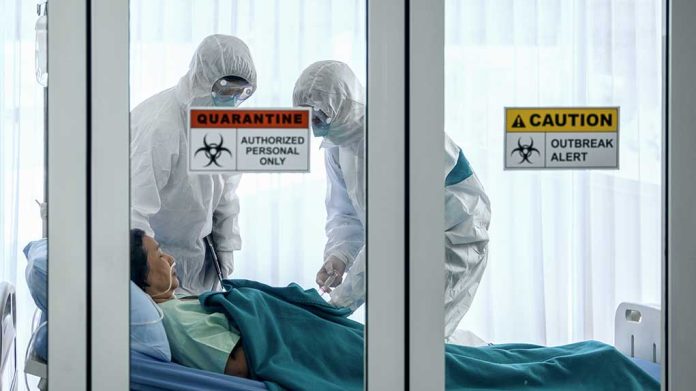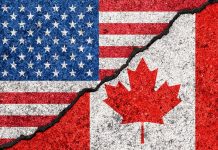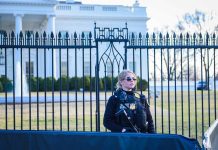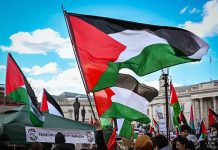
The proposal for CDC quarantine camps during the COVID-19 pandemic ignited significant controversy over ethics, civil liberties, and transparency.
At a Glance
- CDC’s quarantine camp plans raised global medical tyranny concerns.
- Resilience of health freedom movement blocked oppressive measures.
- Legal process and civil liberties were overlooked in CDC plans.
- Call for transparency and accountability in public health decisions.
CDC’s Controversial Quarantine Camp Proposal
The Center for Disease Control (CDC) faced widespread debate following its plan for establishing quarantine camps during the COVID-19 pandemic. These camps intended to house high-risk individuals, dubbed “green zones,” were outlined in a CDC document titled “Interim Operational Considerations for Implementing the Shielding Approach to Prevent COVID-19 Infections in Humanitarian Settings.” The concept aimed to reduce virus transmission by keeping vulnerable groups isolated from the general population. However, these measures, which included strict controls, sparked concerns over potential government overreach and civil liberties violations.
Amidst the worries, the absence of provisions for legal appeals or due process was a critical issue. Critics argued that such steps were fundamental to maintaining Americans’ civil liberties while using the CDC’s authority effectively. According to Alexandra Phelan from Georgetown Law School, “There are really basic due process steps that could be put in place that would not undermine the CDC’s powers, but that would put in checks and balances so that when the powers are exercised, it’s done in a way that respects civil liberties.”
The CDC Planned Quarantine Camps Nationwidehttps://t.co/Na7P727xSf
— GraniteGrok (@GraniteGrok) November 12, 2024
Reaction from the Health Freedom Movement
Burgeoning opposition from the health freedom movement stemmed from fears of involuntary isolation and its ramifications, including family separations and psychological distress. This resistance was deemed crucial in preventing oppressive measures like quarantine camps and vaccine passports from taking hold. Advocates continued to push for a balance between public health safety and individual freedoms, highlighting the need for more transparency and public accountability in governmental decisions involving health crises.
Growing debates over quarantine camps and similar strategies underscore an essential dialogue about protecting civil liberties while navigating public health challenges. The contentious removal of the CDC’s initial quarantine camp documents from public access only fueled further skepticism over transparency and possible government excess in health matters.
The Path Forward: Balancing Health and Liberty
The intensity of the debate over CDC quarantine camps highlights the delicate interplay between public health measures and civil liberties. Implementing reasonable due process, as suggested by experts in the field, could offer a feasible solution. Establishing transparent communication channels also remains vital to maintain public trust and fair governance. Calls for full disclosure and accountability for those involved in drafting health directives continue to stand as a testament to the enduring demand for equitable public health strategies.
Successful public health strategies must strike a balance between protecting the community and upholding individuals’ rights, ensuring that government intervention remains fair, transparent, and justified.






















